What’s in it? Quick Summary
Ikigai Summary by Hector Garcia and Francesc Miralles helps you find your reason for being. It also shares secrets that Japanese people use to improve their longevity.
You can buy the book in your preferable format below.
Get the Audiobook: Listen free with Audible Trial
Get the Paperback version: View price on Amazon
Get the Hardcover version: View price on Amazon
Who Should Read The Ikigai Summary? And Why?
Anyone confused in life and lacking direction should definitely read this book.
Why is this book great? It’s because this book would help you find meaning in life.
Do you know? A life without purpose isn’t a life. It’s a life wasted.
Ikigai Summary (PDF)
First, I’ll explain what Ikigai means and how to you find yours.
Then I’ll share the little lessons that I’ve learned from it.
Let’s dive right in, shall we?
What Is The Ikigai Concept?
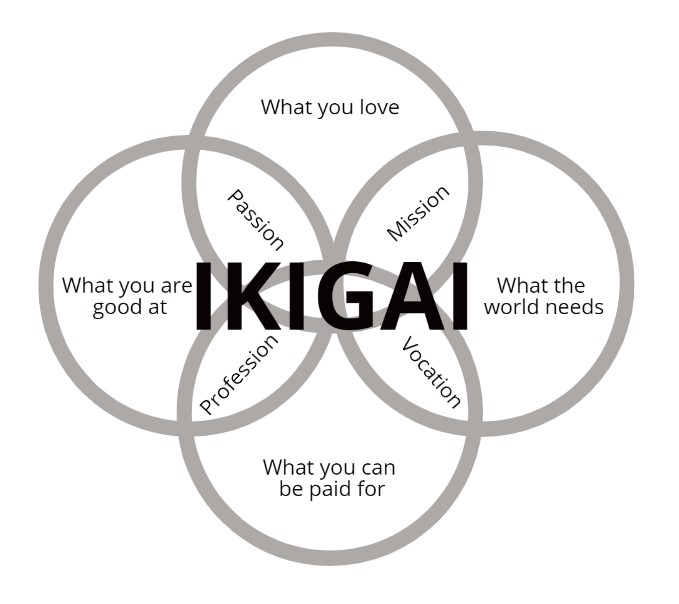
Ikigai is a Japanese concept.
Now you might wonder, “Why is it so popular?”
As stated in this book, the Japanese are the winner when it comes to longevity in life.
That means the Japanese live longer when compared to any other country.
The question is:
How do the Japanese live longer? What’s the secret to their longevity?
One primary reason is that the Japanese practice the concept of Ikigai.
You want to live longer, right?
So keep reading this summary.
What does “Ikigai” mean? (Ikigai’s definition)
Put simply, it’s your reason for being.
In other words, Ikigai is your purpose in life.
The mind-boggling question is how to find it.
Keep reading. Below I’ve given a complete framework for finding your Ikigai.
Best Tools for Bibliophiles
- Listen to your Favorite Books on The Go: Try Audible and Get Up To 2 Free Audiobooks | Get 3 Free Audiobooks
- Read over 2 million e-books on any device: Sign up for 30 days free trial of Kindle Unlimited and read your favorite titles.
- Get free 2-day shipping of your favorite books and stream premium TV shows on Amazon Prime: Sign up for 30 days free trial of Amazon Prime.
- I use Notion to take reading notes, plan everything, and run all my businesses. (Notion is my Second Brain 🤯): Get Notion for free for personal use (paid for teams/businesses)
How Do You Find Your Ikigai?
Finding your Ikigai might take some deep introspection.
Think of Ikigai as an onion. To reach the core, you’ve to peel the outer layers.
When you’ll uncover your personal layers, only then you’ll get closer to finding your Ikigai.
The first step is to ask a few basic questions like:
- “What do you love?”
- “What you are good at?”
- “What does the world need?”
- “What you can be paid for?”
Once you find the answer to the above questions, note them down on a piece of paper.
The next step is to take an intersection of any two of the above questions.
Here is how you do it:
#1 What do you love? & What are you good at?
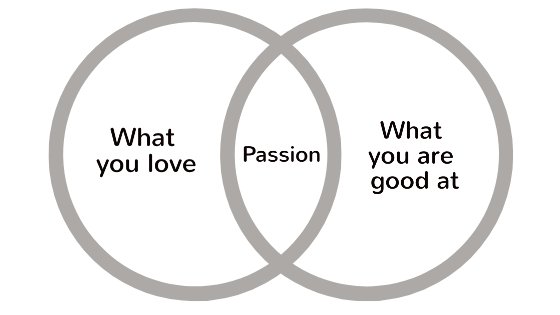
Answer to these would help you discover your passion.
Again, to discover your passion, you’ll have to dig even further.
What you love and what you are good at could be entirely unrelated.
For example:
You might love dancing, but you might be terrible at it.
Another example:
You might hate drawing, but you might be a natural at it. You know, there are exceptions. (duh!)
#2 What are you good at? & What can you be paid for?
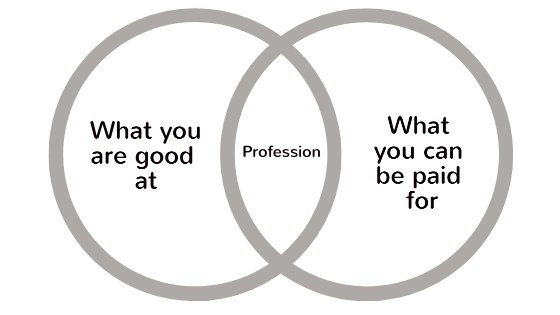
Answer to these questions would bring you a little closer to your possible profession.
You might be good at singing. But at the same time, there is a lot of competition in the market.
In this case, you’ve to look whether you’ve got what it takes to cut through all that noise.
Ask yourself if your skill can be monetized.
#3 What does the world need? & What can you be paid for?
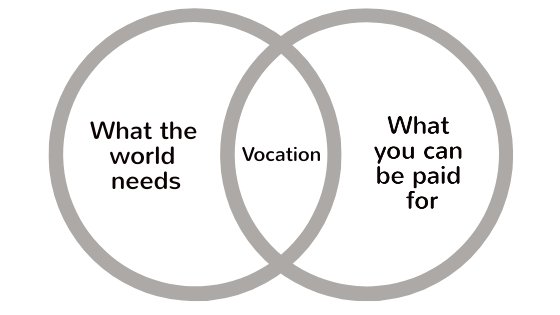
These questions might be game-changers.
These would help you determine your vocation.
Because if you have skills that the world desperately needs, you’ll be profitable eventually.
Here is a catch. What is profitable might not be the same as what you’re passionate about.
#4 What do you love? & What does the world need?
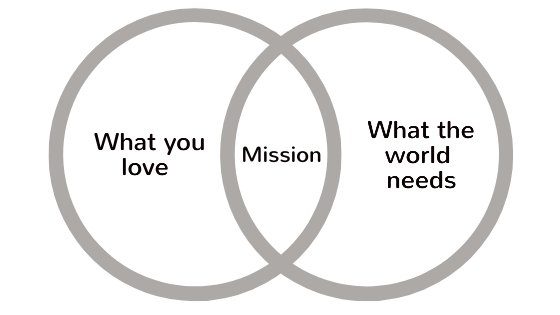
Finally, these questions would help you determine your mission.
And let me remind you, if you don’t know, a mission is more significant than goals.
So you’ve figured out the answer to all the questions above.
Now comes the big question: What’s your Ikigai?
Find one thing that is common in all the answers above.
Those things that tick all the criteria: passion, mission, vocation, and profession, can be your Ikigai.
You’ll need to pick one or two things at the end, though.
I would love to tell you that finding Ikigai isn’t going to be easy. It’ll take time.
Also, you’ll need to learn about yourself. Otherwise, you’ll never be able to come up with the right answer.
That’s it. I hope you understood the Ikigai concept. And with the right approach, you’ll be able to find yours.
Now I will share all the lessons that I’ve learned from this book.
Let’s dive deeper.
Lesson #1: Never Retire
“Many Japanese people never really retire – they keep doing what they love for as long as their health allows.”
Ikigai
The above fact says a lot about the mindset of Japanese people.
Japanese people possess qualities like hard work, patience, and perseverance that help them keep going.
Here I don’t mean that people in other countries don’t have those qualities, but since we’re talking about the longevity of Japanese people, I’m putting more emphasis on that.
What do you think allows Japanese people to keep doing what they love?
It’s Ikigai: their passion, vocation, mission, and profession.
Now, what can you learn from this?
Find a job or profession that you could do for your entire life, which you usually have the least reluctance with.
Most people see their jobs as a burden. They believe that they have to do it until they reach 60. And after that, they’ll enjoy their happy lives by relaxing and playing with their grandchildren.

But that approach isn’t practical but is fruitless and less satisfactory.
One must keep his body and mind busy to stay fit.
And it’s common knowledge that those who are fit and free of diseases live longer.
Those who take retirement from their jobs often end up in a paradox.
Let me elaborate:
They leave their jobs thinking that their jobs are taxing them of their energy and retire.
But later, they realize that job gave them a purpose to live. They end up without purpose and don’t enjoy their days of retirement. They feel that they are missing out on many opportunities that they had while doing their jobs.
Again, that’s not the case with everyone. But still, many people go through this dilemma. After retirement, they lose their purpose to jump off the bed every morning.
Finding Ikigai makes sure that you do something that keeps you in a flow, and you’re able to do it till you die.
Plus, it helps you contribute to the world and makes sure that whatever you do is needed by the world, which again gives you a sense of satisfaction.
I can’t stress enough how crucial it is for everyone to find his Ikigai.
Anyway, don’t take retirement. Keep doing what you love.
Lesson 2: Technology Might You Help Live You Longer

Compared to a million years ago, people didn’t have the bio-equipments to fight diseases.
You could say that technology today helps us live a little longer.
But it has its downsides too that reduce your age.
For example, with the boom of technology, children now spend more time in front of their screens, which further encourages sedentary habits.
Moreover, smartphones are often the cause of mental issues like stress and depression in teens.
According to the author, stress is a longevity killer. It affects cellular aging.
What can you do to minimize stress?
One tip is to be mindful or conscious about your thoughts and emotions.
Often stress occurs when we are overwhelmed by our chaotic thoughts.
You can’t control your emotions. You don’t even have to counter them.
Just accept your emotions and silently observe them. This will calm you down a little and reduce stress.
Lesson 3: Avoid Sedentary Work For Extended Periods
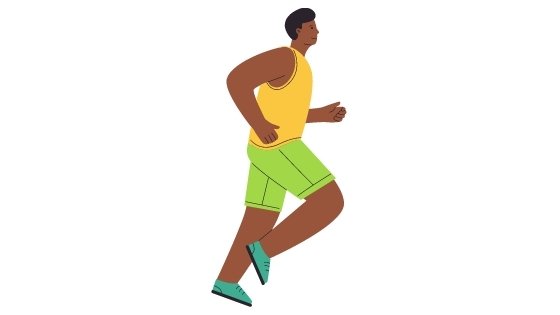
One should avoid sitting idle for extended periods.
Why? Because it can pave the way for so many diseases.
You don’t want to get sick, right?
It’s easy to avoid being sedentary in this hectic life.
For instance, you can take a short walk during breaks.
Or you could exercise regularly for at least 30 min every day.
I’m no fitness guru, so I won’t say much here.
I hope you got this point.
Lesson 4: “Accept The World As It Is”
This world is nowhere near perfect.
It’s only by acceptance that you come to terms with it.
For example, your thoughts won’t come as you want them to. If you imagine that negative thoughts stop coming to you, the next moment, there will be a barrage of negative thoughts.
But once you start to embrace them with an open heart, you’ll feel relaxed.
Things happen for better or worse.
The problems start when you build expectations.
One way to come at peace is to imagine the worst-case scenario. This will help you realize your privileges.
Stoics used this technique. By imagining the worst that could happen, they prepared during the good times.
Lesson 5: Challenging Tasks Put You In A Flow
Have you ever observed that time flies by quickly when you read a book with an exciting plot?
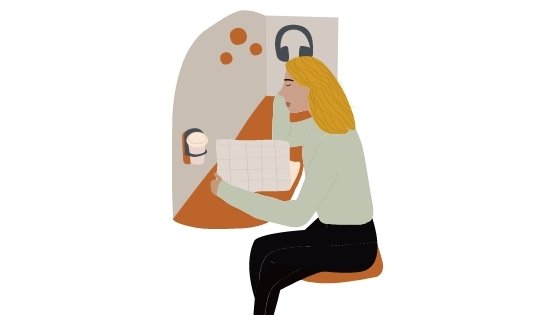
When you’re entirely in the zone, you don’t pay any attention to whatever happens in your environment.
And that’s what is known as “being in the flow.”
If you’ve figured out your Ikigai, you’d already be in flow when you do that thing because you’re passionate about it.
But if you haven’t yet, you might try another approach.
Try to push your limits a bit.
For instance, if you’re used to writing non-fiction like me, try to push your boundaries and attempt writing fiction.
When you challenge yourself, your brain rewards you for it, marked by the good feeling.

Doing that might put you in a flow.
The author says that people who have the right attitude or outlook towards problems or challenges tend to live longer.
Lesson 6: “Eat Less To Live More”
The okinawan diet is famous all over the world.
Because people in Okinawa have a low mortality rate.
So people are always excited to learn what their diet contains.
Here is their secret:
Apply 80-20 rule to your diet.
It’s simple to apply, believe me.
Eat only 80 percent of the food and leave the rest.
Here, the idea is to eat less than you could fit in your belly. Stay a little bit hungry.
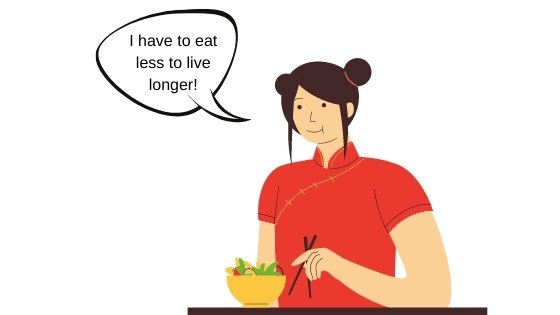
The caveat is you don’t have to malnutrition yourself and weaken your immune system.
Eat super nutritional food. Avoid sugar. Eat enough food. But don’t do overeating.
Often people eat to fulfill their desire to eat tasty food.
Lust of food is dangerous.
HERE IS HOW YOU CAN ACHIEVE REMARKABLE GROWTH IN YOUR CAREER AND LIFE
If Ikigai isn’t enough for you, and you still want to learn more about finding purpose and meaning in your life, then I highly recommend that you check out this course on Coursera:
“Finding Purpose And Meaning In Your Life” (Click to learn more and Sign Up!)
If you wonder what Coursera is, it’s an educational platform that provides professional courses on diverse fields and topics.
You can enroll in many courses to achieve growth and success in your career.
Coursera Plus gives you Unlimited access to 3,000+ world-class courses.
Ikigai Quotes
“We are what we repeatedly do. Excellence, then, is not an act but a habit.”
Aristotle
“We don’t create meaning of our life, we discover it.”
Sartre
“It’s not what happens to you, but how you react that matters.”
Epictetus
“Our Ikigai is different for all of us, but one thing we have in common is that we are all searching for meaning.”
Hector Garcia, Ikigai
References
- The book: Ikigai by Hector Garcia & Francesc Miralles
- https://time.com/5437607/smartphones-teens-mental-health/
Ikigai Book Review
This book is conceptually similar to Man’s Search For Meaning by Viktor Frankl, as both books emphasize the idea of finding purpose in life.
Plus, both books talk about Logotherapy. In that therapy, a person is made to sit and face difficult questions, which bring him closer to finding his meaning in life.
This was a short book. I finished it in 3-4 hours. You might finish it even less time.
Body exercises are given at the end of this book to help you revitalize yourself.
Also, easy-to-digest tips are given throughout this book.
If you aren’t an avid reader, you should read this book as it won’t require much effort.
Also, I found that this book uses some ideas from philosophies like Stoicism, Buddhism, etc.
Suggested Book Summaries
If you liked this summary, then you may also like:
- Man’s Search for Meaning by Viktor Frankl
- Chop Wood Carry Water by Joshua Medcalf
- So Good They Can’t Ignore You by Cal Newport
- The 7 Habits Of Highly Effective People by Stephen Covey
- The One Thing by Gary Keller
- 12 Rules For Life by Jordon Peterson
smart Tip
Learn more key insights from books on Blinkist
- How Morita Therapy helps people recover from stress?
- Why movement, even in simple forms, is a fundamental aspect of life?
- Longevity tips from old-timers.
- How engaging in fun activities like Skiing can increase your life span?
Click here to sign up for Blinkist and start a 7-Days FREE trial.
You can read and watch the book summaries and reviews of 100 plus books before buying them for free. Just search the book’s name in the search box, and if I’ve written a summary for it, it’ll show up in the results.
Now It’s Your Turn
Share it with your friends and family members if you loved this summary. Thanks!
Also, feel free to share your opinions in the comments down below.
And don’t forget to subscribe to my email newsletter to stay updated and make your time productive overall.
Want to consume more insightful, power-packed content like this in the future?
Subscribe to the weekly email newsletter.
Subscribe to YouTube channel for animated video books.
Try Amazon’s Audible 30-days Free Trial and Get 2 Audiobooks for free.

